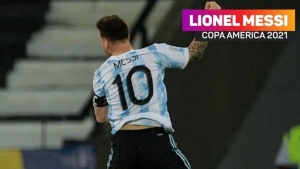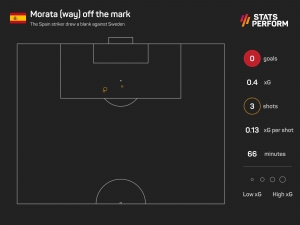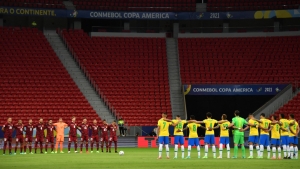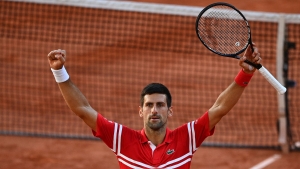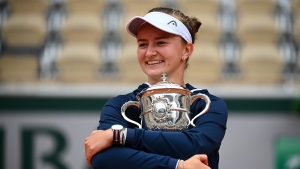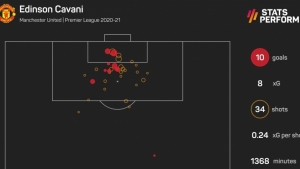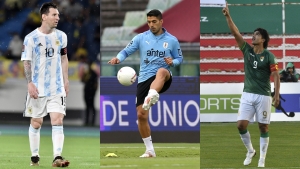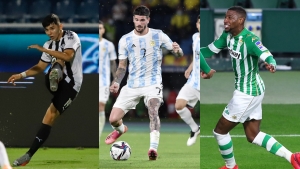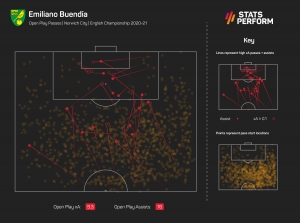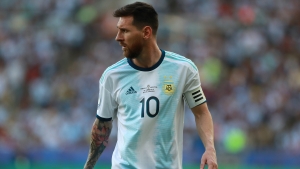The one-year postponement of the Copa America gave Argentina vital time as they sought to avoid squandering probably the most precious asset ever granted to any international team in football history.
A yawning gap remains in Lionel Messi's glittering collection of honours. At club level, the Barcelona superstar has won it all, won it again and won it some more just for good measure. For Argentina, he is yet to lift a major honour.
Rather than an international tournament, Messi spent the last close-season negotiating his next move – which ultimately meant staying in Catalonia. His contract is up again in 2021, but the legendary forward must also negotiate the rearranged Copa this time.
Realistically, this tournament and the 2022 World Cup in Qatar represent his final shots at glory for La Albiceleste, with the nagging sense his best chance to emulate the likes of Pele and Diego Maradona with a defining triumph at the highest level might already have passed him by.
THE GOLDEN GENERATION
Over recent years, Messi has frequently appeared wearied as a man carrying the weight of his team on his shoulders for club and country.
Of course, this was not always the case. At Barcelona he was the shimmering jewel in Pep Guardiola's slick and sublime masterpiece before starring as part of Luis Enrique's turbo-charged MSN forward line.
Argentina's more forlorn efforts of late make it easy to forget what a defining generation of talent Messi once spearheaded.
Any heavyweight football nation collecting back-to-back Olympic gold medals, as Argentina did in 2004 and 2008, would reasonably expect the senior honours to follow – with or without arguably the greatest of all time at their disposal.
Names from those podiums in Athens and Beijing trip off the tongue. Javier Mascherano, Carlos Tevez, Javier Saviola, Pablo Zabaleta, Fernando Gago, Ever Banega, Ezequiel Lavezzi, Angel Di Maria and Sergio Aguero are all Olympic champions.
At the 2010 World Cup, the fairytale combination of Messi and the Messiah – the late Maradona inimitably entertaining but evidently ill-cast as head coach – fell to Germany in the quarter-finals.
Die Mannschaft also beat them in 2014 – this time as Mario Gotze scored the only goal in the final during extra time. Alejandro Sabella's steadying hand brought them to the brink of sporting immortality and Messi was named player of the tournament, despite some underwhelming showings by his own standards.
NEAR MISSES, RETIREMENT AND SHAMBLES
Gerardo Martino managed not to win a major trophy when he led Barcelona in 2013-14 and, unfortunately for Messi, history repeated during his tenure with the national team.
Gonzalo Higuain missed a glorious chance in the World Cup final and he and Banega erred from the spot as Chile won the 2015 Copa America in a penalty shoot-out.
Against the same opponents at the Copa America Centenario 12 months later, Messi himself failed amid further heartache from 12 yards.
As emotions ran high in the aftermath, the number 10 announced his retirement from international football, with rumours other stars would follow suit due to disaffection with the Argentine Football Association.
By the time Messi returned for a 3-0 World Cup qualifying defeat to Brazil that November, Edgardo Bauza's tenure as head coach was already on the rocks.
Jorge Sampaoli replaced him and Argentina needed an utterly majestic hat-trick from their talisman away to Ecuador to snatch a place at Russia 2018.
Perhaps they shouldn't have bothered.
Having brought Argentina to their knees while in charge of Chile, Sampaoli inadvertently did the same again during a shambling turn ended by eventual champions France in the last 16. There was a near revolt after a group-stage thrashing from Croatia and the coach left with his reputation in tatters.
LIONEL, LIONEL AND LAUTARO
Star names such as Martino and Sampaoli not working out probably help the cause of the unheralded Lionel Scaloni, who emerged from the rubble of Russia to take temporary and then full charge.
The 2019 Copa America got off to a similarly inauspicious start, but they scrambled out of the group and were arguably a little unlucky to lose 2-0 to hosts and eventual winners Brazil in the semis.
A feisty third-place match against Chile was won 2-1 thanks to goals form Aguero and Paulo Dybala, despite Messi bizarrely getting sent for being repeatedly butted by Gary Medel.
An indignant post-match interview brought a four-game ban, although a more vocal Messi leading through words as well as deeds was a pleasing development. In his absence, 4-0 and 6-1 wins over Mexico and Ecuador suggested brighter times ahead with a younger core.
Goals in the early stages of World Cup qualifying this season have been slightly more sparse – six in four games – but Argentina have still taken 10 points to remain unbeaten, second to Brazil in the standings.
Lautaro Martinez has been involved in half of those qualifying goals (two goals, one assist) and has now firmly established himself as the number one option at centre-forward, where Argentina's surplus of riches makes their lack of reward so embarrassing.
Going slightly further back, since Scaloni first took charge, the Inter star has 11 goals in 20 games – averaging one every 120.3 minutes and outstripping his expected goals (xG) figure of 7.8. Messi has six goals at 193.7 minutes per goal from an xG of 8.0 over the same period.
European club form coming back home to the national team has not always been a given during the Messi years, as evidenced by that slightly more ordinary return, so it is encouraging to see Martinez scoring at a faster rate under Scaloni than he has to date during his 100-game Serie A career (37 goals at one every 172.4 minutes).
THE NEW GENERATION
Aguero – a regular until Martinez came to the fore – may still have a role to play in trying to right a journey of heartache he has charted alongside Messi in blue and white. But Scaloni has come to rely on new faces as he quietly shapes a team in his own image. Moulding the ramshackle embarrassment of three years ago into a compact and hard-working unit necessitated high-profile casualties.
A pair of substitute appearances in November were Di Maria's first international outings since being dropped during the Copa. Paulo Dybala is fit again but seemingly now no longer even a bench option in the coach's eyes.
Argentina's all-action midfield creator is now Udinese's Rodrigo de Paul, whose 122 completed dribbles led Serie A this season, while his 18 goal involvements (nine goals, nine assists) ranked joint-third among midfielders.
Di Maria's Paris Saint-Germain colleague Leandro Paredes has started alongside De Paul in each qualifier to date, and Giovani Lo Celso has two assists in just 159 minutes of international action this season.
Disappointingly, winger Nicolas Gonzalez has been dogged by thigh injuries since scoring twice in November. With a goal every 155.8 minutes in the Bundesliga this term, he had been one of those set to profit from the Copa's new date.
Selection has also been consistent in defence this season, but German Pezzella's ill-timed injury absence meant Lucas Martinez Quarta was the Fiorentina defender allowed to settle in the heart of the back line.
Pezzella – a stand-in captain for the national team not so long ago – remains the main man in Florence, playing 32 league games to Martinez's 21, yet his younger colleague averages more tackles (1.9), interceptions (2.4) and blocks (0.6) per 90 minutes.
It looks like a case of either/or next to Nicolas Otamendi and his frequent reversions to slapstick, although Atalanta duo Cristian Romero and Jose Luis Palomino are also both now in the mix.
Elsewhere, despite the new call-ups – Emiliano Buendia is another debut option but has been plying his trade in the Championship – Scaloni's reliance on a steady XI might hint at a lack of depth. When the Copa was delayed by 12 months, one of world football's heavyweights might have hoped for more than the development of Inter's second-best striker and a wealth of defensive options in the meantime.
Instead, the narrative remains frustratingly familiar: Argentina need Messi to fire.
























